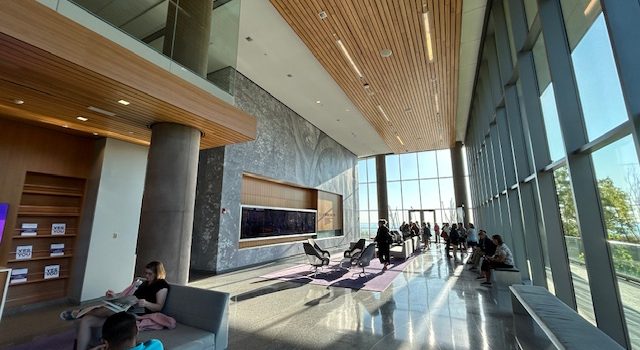How Could State Politics Affect College Decisions?
Politics at the federal level have always had major impact on college admissions, most specifically issues about financial aid. More recently, coming off two victories before the U.S Supreme Court, Students for Fair Admissions, a non-profit that filed suit against Harvard and the University of North Carolina system, and U.S. Senator J.D Vance (R-Ohio) have promised that they “will be watching” admissions offices when it comes to seeking diversity in their student bodies. However, state politics will become more influential for college-bound students and their families.
State politics influence more than financial aid and budgets for public colleges.
- Governors nominate and legislatures approve public college presidents and trustees.
- Legislators may propose to add or eliminate public college degree requirements as well as college activities, offices, and programs.
- They may also propose public questions, aka referenda, to the voters.
- Legislators also consider bills that affect student life and access to a college education.
Not all high school seniors are politically liberal.
A 12th grader’s political views will vary, because their parent’s views vary as do the views of voters in their home states. Yes, I know of students who hold liberal views who will not go to college in states that have passed restrictive abortion laws or policies targeted towards marginalizing the LGBTQIA+ community. You probably do, too. But I also know that the flagship public universities in states such as Florida and Texas will have no problem filling their freshman classes. The same will be true for the more selective private universities in politically conservative states.
I found an interesting piece in The Hill, that reported the following:
- Twenty-five percent of male 12th graders identified as “conservative” or “very conservative.”
- Only 13 percent of this population identified themselves as “liberal” or “very liberal.”
- Thirty percent of female 12th graders identified themselves as “liberal” or “very liberal.”
- Only 12 percent of this population identified themselves as “conservative” or “very conservative.”
This tells me that the larger share of high school seniors are moderates or have not considered their politics. It also makes me wonder how the college-bound seniors might consider state politics when choosing a college. I will use my home state as an example. It’s the state that I know best when it comes to state politics.
New Jersey is my home state-a state that college-bound students love to leave.
Rutgers-New Brunswick, our flagship state university, charges among the highest in-state tuition and fees of any flagship in the country. This has been true for a while, no matter if the governor was a Democrat or Republican, or which party held the legislative majority. However, neither our governors nor our legislature have gotten actively involved at telling colleges what to do with their academic programs or student life. This has become less true in states such as Florida, North Carolina, South Dakota, and Texas.At the same time Penn State and the U of Maryland-College Park are highly sought options. So are James Madison, Purdue, the University of Michigan, the University of Illinois at Urbana-Champaign and the University of Wisconsin-Madison.
I can picture politically conservative students wanting to leave New Jersey, if they have the financial resources to do so.
However, if they want to return to work in New York City, they might want to reconsider their interest in the flagship universities in some conservative states. I went into LinkedIn.com and found some interesting numbers for these increasing popular educational options:
- Clemson University (SC) —third largest freshman cohort is from New Jersey—4,500 alumni in the New York City metro area.
- Georgia Tech—third largest freshman cohort is from New Jersey—9,700 alumni in the New York City metro area.
- James Madison University (VA)-second largest freshman cohort is from New Jersey—8,800 alumni in the New York City metro area.
- University of Alabama—eighth third largest freshman cohort is from New Jersey—4,900 alumni in the New York City metro area.
- University of South Carolina—third largest freshman cohort is from New Jersey—7,500 alumni in the New York City metro area.
- Virginia Tech—second largest freshman cohort is from New Jersey—9,200 alumni in the New York City metro area.
- West Virginia University—fifth largest freshman cohort is from New Jersey—8,600 alumni in the New York City metro area.
All of these flagships and James Madison are located in states that have Republican governors.
Only Virginia has a split legislature; one house has a Democratic majority; the other house is Republican majority. Republicans lead the other state legislatures. The governor’s office and the legislatures are likely to remain this way for the next four or five years. Each university has a large alumni base to help in a job search in New York, provided that the school has a strong alumni club. But their alumni communities pale in size to Rutgers-New Brunswick (168,000) or even the University of Delaware (28,000).
State politics might also lead cost-conscious students to leave New Jersey, even if they are liberal.
SUNY Albany and the University of Maine and among the public colleges that will keep out-of-state tuition at or close to in-state charges for Rutgers’ main campus. So do some schools in the Pennsylvania State System of Higher Education. These are smaller schools; they have less than half the number of undergrads that go to Rutgers. Michigan State, which is larger, offers generous merit scholarships. However, these schools are they’re less popular with New Jersey’s college-bound community than the southern schools that I covered before.
- Kutztown University (PA)—second largest freshman cohort is from New Jersey—12,600 alumni in the New York City metro area.
- Michigan State University—sixth largest freshman cohort is from New Jersey—10,500 alumni in the New York City metro area.
- SUNY Albany—second largest freshman cohort is from New Jersey—50,000 alumni in the New York City metro area.
- University of Maine—fifth largest freshman cohort is from New Jersey—2,700 alumni in the New York City metro area.
- University of Rhode Island—fifth largest freshman cohort is from New Jersey—13,400 alumni in the New York City metro area.
All five universities are located in states that have a Democratic governor and legislature.
They are likely to remain that way for another four or five years. But I don’t know how many Garden State residents will consider SUNY Albany versus UDel or Rutgers. It’s in New York’s state capital and an emerging technology center. So, New York state politics might prompt them to take a look at this flagship It also houses over half of the undergrads; that’s not true for Rutgers, Penn State or UDel. Pennsylvania’s state politics might lead people in Central New Jersey to check out Kutztown. It’s about an hour from the Princeton area, not far from the northeast border of New Jersey and Pennsylvania. That school has fewer undergrads (6,500) than Montclair State or Rowan and houses half of its undergraduate student body.
Different states take different actions–and so do their residents
New Jersey has only one flagship research university. It has a perceptually high acceptance rate (60%), through the hurdles are higher for business, engineering, nursing and pharmacy. Other states, most notably California, Florida and Texas, have more selective flagship schools. These states do a better job at in-state affordability and have low out-of-state enrollments. Yet residents of these states have prominent demographics at flagships in other states. State politics have helped to make the admissions processes what they are. They might also be a reason for students to leave their home state, if they have the resources to do so.
Want to know more about me?
Buy my new book, The Good College!
Listen to my latest interview on ‘Tests and the Rest’ with Amy Seeley and Mike Bergin!
Listen to my talk, What Exactly Is a Good College? hosted by test-prep experts Amy Seeley and Mike Bergin on Tests And The Rest!
Listen to my talk, College Is A Learning AND Living Community hosted by Dr. Cynthia Colon from Destination YOUniversity on Voice of America Radio!



